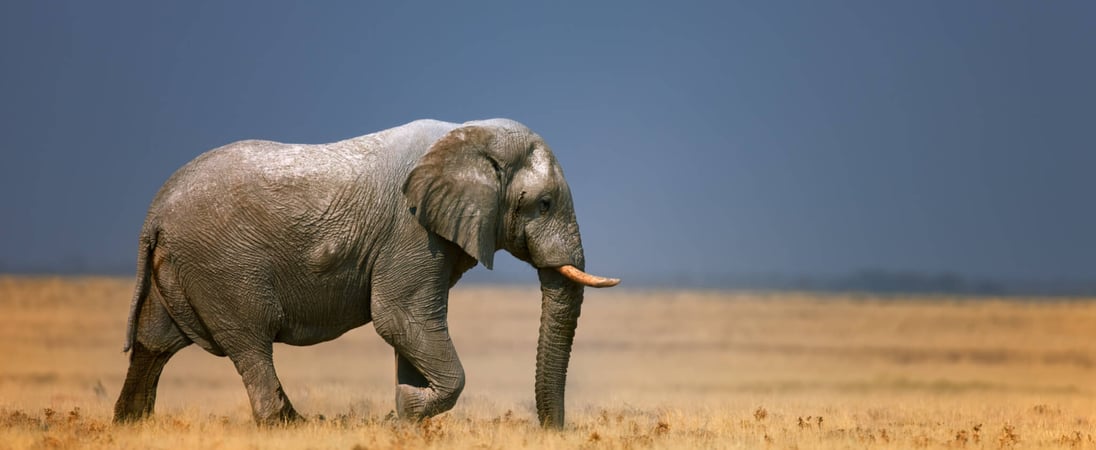
Save The Elephant Day
Volunteer or donate to Save an Elephant, and help preserve these majestic, intelligent, and of course giant threatened creatures that shape our ecosystems.
Elephants are known as the most enormous land animal and a surprisingly gentle giant in the animal kingdom.
Emotional, intelligent and beautiful in the wild, sadly elephant populations have been rapidly decreasing due to various threats, perhaps most significantly poaching.
Save The Elephant Day aims to change this alarming trend by educating people about elephants and the plights they face, encouraging everyone to do their bit and help save them from extinction.
How to Celebrate Save The Elephant Day
Support a Conservation Charity
One of the best ways to celebrate Save The Elephant Day is to support or even volunteer for an organization that focuses its efforts on the conservation of these creatures, for example by helping to prevent poachers from killing elephants for their ivory tusks.
Organizations such as the World Wide Fund for Nature (WWF), Fauna & Flora International (FFI) and the Elephant Crisis Fund (ECF) do a great job protecting these creatures and there are plenty of ways you can get involved, for example by adopting an elephant for yourself or a loved one.
Visit an Animal Sanctuary
You can even save up some money and take a trip to an animal sanctuary that cares for elephants. These projects can help with the rehabilitation of abused animals that have been rescued from exploitation, as well as with the housing of wild elephants that are sick or orphaned. You could also go and see some elephants in the wild by visiting Africa or Asia.
Promote the Day
Save The Elephant Day is all about raising awareness, so take the time to learn more about these creatures by researching facts about the elephant, and then take an active effort in educating other people.
For example, you could post flyers, share information on social media and show your support for the elephant through events and fundraisers.
There are plenty of ways you could help raise funds for elephant conservation. How about a themed bake sale or a ‘pin the tail on the elephant’ contest? Why not try auctioning off some elephant artwork or other memorabilia?
Or you could organize an ‘elephant walk’ and compete to see who can plod their way the farthest!Whatever you do to celebrate, be sure to share this important day with your friends, family neighbors and colleagues and help save the elephants together!
A Brief Education in Elephants
There are currently three species of elephant spread across Africa and Asia: the African bush elephant, the African forest elephant and the Asian elephant.
Characterized by their enormous size and highly adept trunks, these creatures are intelligent, social and largely gentle giants.
They’ve been shown to display a range of emotions such as joy, anger and grief and live in complex social structures – matriarchal herds for the female cows and calves and a solitary lifestyle or bachelor herds for the male bulls.
Elephants are highly communicative animals, producing various noises including infrasonic, creating seismic vibrations over long distances and greeting each other through touch.
Their impressive trunks provide them with an excellent sense of smell, a handy snorkel when swimming and even a delicate nutcracker.
History of Save The Elephant Day
Elephants are what is known as a keystone species due to their effect on their environment and the flora and fauna around them.
Their size and strength allow them to shape the habitats they live in, for example by digging new watering holes. They are also vital for spreading seeds, facilitating the reproduction of various plant and tree species.
They have also long been valued in human culture, admired for their wisdom, strength and sociable natures. In addition, elephants have commonly featured in architecture, whether engravings on cave walls, sculptures in Buddhist temples or stone carvings on Gothic churches.
These fascinating creatures have also been revered in various world religions, believed to house the souls of ancestors and linked with thunder and lightning, for example. Perhaps the best-known example is the Hindu god Ganesha, who is depicted as having the head of an elephant.
Elephants are frequently used as working animals in Asia, with people drawing on their incredible strength to carry heavy loads in construction projects or provide a mode of transport. In ancient times they were even used in various wars.
Yet despite our affinity with and indebtedness to these amazing animals, our treatment of them has sadly led to a decline in numbers and a proliferation of abused and exploited elephants.
The main culprit in population decline is the ivory trade – although it has largely been banned since the late 1980s, illegal poaching continues to this day, with one African elephant killed every 30 minutes for its tusks.
Other threats to the elephant include habitat loss and fragmentation, usually caused by increased urbanization, and conflicts with humans over crops. There are also numerous instances of maltreated and neglected elephants in captivity, for example those used in circuses or as tourist attractions.
Sadly, African bush elephants and Asian elephants are both listed as an endangered species by the International Union for Conservation of Nature (IUCN), while African forest elephants are classed as critically endangered, with their population rapidly declining.
While these facts are certainly sobering, all hope is not lost! Various organizations are working hard to increase the number of wild elephants and to rehabilitate those rescued from unpleasant circumstances.
And real change is possible – lobbying efforts recently induced China, previously the biggest ivory market globally, to ban the trade in 2018, helping reduce the threat to elephants.
To celebrate Save The Elephant Day, people learn about the awesome elephant and make an effort to improve the worrying statistics regarding their numbers by donating to conservation organizations.
Together we can work to protect these precious creatures, and that’s what Save The Elephant Day is all about!
Save The Elephant Day FAQs
What role do elephants play in folklore around the world?
In Indian folklore, elephants are believed to bring rain and are associated with monsoon blessings.
In African myths, they symbolize strength and kingship. Many stories depict elephants as wise and kind, helping humans in times of trouble.
How do elephants communicate over long distances?
n Elephants use low-frequency rumbles that travel several miles through the ground. They sense these vibrations using sensitive skin on their feet, allowing them to coordinate movements and warn others of danger.
What unique challenges do forest elephants face compared to savanna elephants?
aForest elephants, found in central Africa, face more threats from poaching due to the high demand for their harder ivory.
They also struggle with habitat loss caused by logging and farming, which disrupt their forest ecosystems.
What is the link between elephants and religion?
In Buddhism, white elephants symbolize purity and are linked to royal power. The Buddha’s mother dreamed of a white elephant before his birth, making them sacred in many Buddhist cultures.
Do elephants display mourning behavior?
Elephants often gather around the remains of deceased herd members. They touch the bones gently with their trunks and may linger for days, showing signs of grief.
What’s the story behind the term “white elephant”?
The term originates from a Thai legend. White elephants, considered sacred, were gifted to people the king wished to ruin, as they were expensive to care for but could not be put to work.
How do people celebrate elephants in less-known ways?
In Laos, Elephant Festivals celebrate their cultural and economic importance with parades, races, and traditional music. These festivals also include educational talks about conservation.
What’s a lesser-known environmental impact of elephants?
Elephants dig for water during droughts, creating pools that benefit other animals. They also spread seeds through their dung, helping forests grow and sustain biodiversity.
Why do elephants throw dust or mud on themselves?
This behavior isn’t random. It protects their skin from sunburn and insect bites. It’s their natural sunscreen and bug repellent!
What’s the strangest elephant-related fact?
Elephants can recognize human voices and tell the difference between friendly and threatening tones. This ability helps them avoid poachers in some regions.
Also on ...
View all holidaysNational Librarian Day
These knowledgeable folks are book lovers and experts in finding information. They love helping patrons and keeping the library organized.
National Banana Day
Orange you glad I didn’t say banana? Enjoy some banana based treat like banana bread, a banana split, or even banana punch, and tell some terrible jokes.
National Eggs Benedict Day
Enjoy some crunchy English muffins, perfectly poached eggs, and the one-of-a-kind savory Hollandaise sauce for breakfast on National Eggs Benedict Day.




